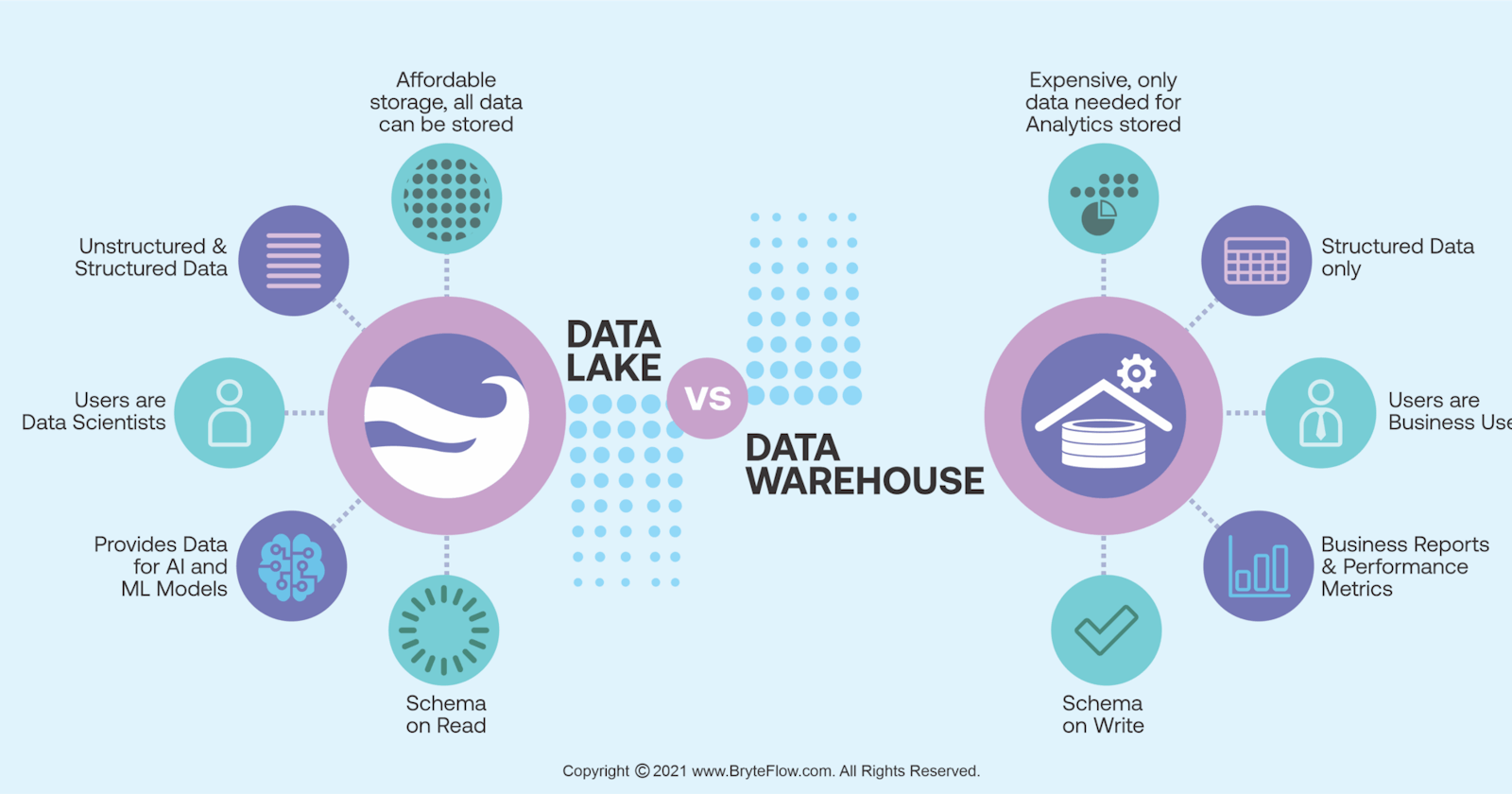🌟 Demystifying Data Storage! 🌟
Today, I explored the intricate world of data management systems, unraveling the differences between #DataWarehouses and #DataLakes. 💾🔍
✅ Data Warehouse:
Purpose: A data warehouse is designed for the analytical processing of large volumes of data. It's used primarily for reporting and data analysis rather than transaction processing.
Structure: Data warehouses typically organize data into a format optimized for analysis, often using a schema-on-read approach. This includes data models like star schema or snowflake schema.
Data Type: Handles structured and semi-structured data, optimized for querying and reporting. It's ideal for historical data analysis.
Use Cases: Used for business intelligence and data analytics purposes, such as financial reporting, trend analysis, and decision-making support.
✅ Data Lake:
Purpose: A data lake is designed to store a vast amount of raw data in its native format until it's needed. It's a more flexible solution that can handle high volumes of diverse data from different sources.
Structure: Data lakes have a flat architecture and don't enforce a schema until the data is read (schema-on-read). This allows for storing unstructured, semi-structured, and structured data.
Data Type: Capable of storing structured, semi-structured (like JSON, XML files), and unstructured data (like emails, documents, images).
Use Cases: Ideal for big data analytics, machine learning, and situations where data is collected in bulk and then later processed for various analytical purposes.
A clearer understanding of where and how to store our ever-growing data. 🚀
📊💡 Need a deep dive? Check this out: https://www.mongodb.com/databases/data-lake-vs-data-warehouse-vs-database
Credits: The Cover image has been referenced from https://www.analyticsvidhya.com/blog/2023/02/a-comprehensive-guide-to-data-lake-vs-data-warehouse/
#DataScience #BigData #MachineLearning #Analytics #TechTalk
